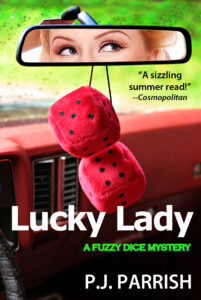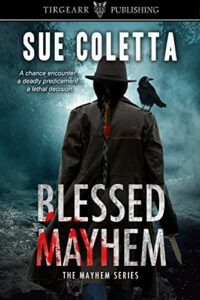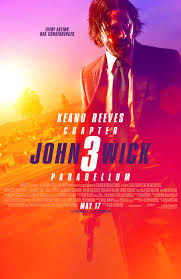JordanDane
@JordanDane

A brave anonymous author has submitted their first 400 word beginning to their novel for feedback. My thoughts will follow the author’s submission. Please add your constructive criticism in your comments. Enjoy!
***
ESCALATION
Chapter 1
Conversation was almost impossible over the sound of the siren and the roar of the ambulance’s diesel engine. Zach felt with his right hand for the siren tone switch without taking his eyes off the road. He flipped the switch to change the siren from the long monotonous wail to the rapid repetitive yelp that would alert the motorists in the busy intersection they were quickly approaching. Ana also intermittently hit the air horn to add another dimension to the sound.
Threading the needle of these busy intersections had become second nature to Zach. He had worked for the Sova County ambulance service for the past three years and had seen the increase in traffic with the county’s growth. His calm expression never changed as he muttered, “You stupid ass!” when a pale yellow late model Toyota Camry plowed through the light. The driver, bobbing his head in time with some unheard beat, was oblivious to the ambulance’s flashing lights and blaring siren. Zach came to a stop and made eye contact with the other drivers before proceeding through the intersection. A red Bronco came barreling around the curve and almost collided with a dark blue Honda pulled to the curb to allow the ambulance to pass. Zach steered through the maze of skewed vehicles with practiced precision. Once they were clear of the traffic, he gunned the engine. Fortunately, the day was bright and clear. It was better not to have the weather as a hazard; the traffic was definitely enough.
“Are you familiar with the area we’re going to?” Ana asked while shading her eyes from the gleam of sunlight reflecting off the side mirror of the truck. Her face felt just short of sunburned from the early morning sun beating down on her side of the ambulance.
Analyn Michaels, a pretty, petite girl with wavy light brown hair that fell just below her shoulders, had been partnered with Zach for the past eleven months. She tugged at the seatbelt cutting into the side of her neck and glanced over at him.
***
FEEDBACK
OVERVIEW – There is a sense of urgency as the ambulance races through the streets in the first paragraph. The heavy wordiness of that paragraph and the longer sentences contradict the urgency and I will rewrite that intro to show what I mean. (See the feedback below in – FIRST PARAGRAPH REWRITE.)
With the start of paragraph 2, the story action slows to a crawl with a backstory dump and the county history on traffic patterns. There is plenty of time to explain the guy’s resume and add to the setting of the story, but if the author dares to write a suspenseful opener, I always recommend – STICK WITH THE ACTION and explain later.
That long heavy paragraph shows Zach fighting traffic, but the sense of urgency is gone. He can be calm by nature of his character, but it’s the author’s job to convey the adrenaline rush to the reader. We can all imagine how tense Zach must be and how hard it must be to deal with bad drivers at busy intersections. Make the reader feel the tension and that a life is on the line.
By the time we get to Ana, the pace is gone as she shades her eyes from the sun and thinks about her sunburn. The description of her is another form of backstory that can wait, if the author’s intention is action and a medical urgency that has the ambulance weaving through traffic with sirens blaring. Ana also reflects on how long she’s been partnered with Zach as the seat belt cuts her neck because of their high speed race.
This introduction is conflicted between the stifled action and bad writing habits that slow the pace, but there is good news. We have ALL made these errors and sought improvement.
These are only my thoughts based on my assumptions on where this story might be going. Take any of my advice for what it is worth, dear author. FREE! I tend to imagine your intention and try to work with what is written. I offer advice based upon what I would edit in my own work. You may not like what I have to say and that’s okay.
TITLE – ESCALATION is not a bad title. I can visualize an action-packed cover and the sense of a thrilling medical drama, but I wanted this introduction to match the adrenaline surge of an EMT/Ambulance driver racing through traffic with the life of a patient on the line. Not all medical fiction books will have a title to match the intro, but this one makes sense since it appears to focus on the EMTs.
POV – I can’t see a particular point of view in this short intro. No telling if Zach is the lead/main character or Ana. Since we get Ana’s full name, it could be that SHE is the one to tell this story, but the focus is on Zach. I would recommend picking a main POV character per scene. Zach may not be the HERO of this story, but I would advise the author to clearly pick ONE POV and stick with it.
At present, this intro is not in Zach’s POV, not when Ana flips the air horn switch in the first paragraph, without being seen from Zach’s eyes. Also, Zach can’t know that the seat belt is cutting Ana’s neck at the end. This intro reads like “head hopping.” Even though we don’t know who the main character is, we still need ONE POV to see this action through.
I tend to pick the character with the most to lose or who has the best emotional vantage point. In this intro, that could be Ana, who has to watch as Zach barrels through traffic like a mad man. Or it could be Zach as he battles the traffic while watching Ana cringe, but pick a point of view and work the emotion.
NAMES – I’m not sure why Ana has a full name AND a nickname, but Zach has only a first name. I would suggest giving characters their full names as soon as you can, even if these characters aren’t the hero or heroine. By giving each character a name, it gives context to the reader and an author can write a fuller characterization with more voice if the character has a name.
On the second book I sold, I had a anonymous bad guy get killed in the intro. It wasn’t until I christened him with a full name, that I could tap into his inner voice and give him an arrogance where he deserved to die. It became more interesting.
FIRST PARAGRAPH REWRITE – I tried picturing a white knuckle ride through a busy intersection as I thought of how to rewrite this. With an action scene, the sentences should be shorter, punchy and filled with action imagery. Fragments are fine. You are conveying a sense of urgency to the reader and pulling adrenaline from them as they read, to get a visceral response. I also added DEEP POV, which are Ana’s thoughts in italics, that inner voice we all have. Mine are usually curses.
REWRITE EXAMPLE 1
Analyn Michaels gripped an armrest and held her breath. Oh, God! Streetlights had changed. Cars ignored the blaring siren. In seconds their ambulance would hit the busy intersection. Watch it! She winced. Ana wanted to trust Zach behind the wheel, but it wasn’t easy.
“Hold on. This’ll be tight.” He glanced at her sideways with a smirk. Smart ass!
An SUV lurched in front of a butt ugly Camry to make a turn. Damn it! The driver of the SUV never saw their flashing emergency lights. Ana reached for the air horn and flipped the switch. At the sound, the SUV screeched in front of them. Ana braced her body as Zach swerved to miss the bastard.
The roar of the ambulance engine rumbled in her gut. Ana fought the adrenaline surging through her veins. When they cleared the worst intersection, Zach gunned the diesel engine. Precious seconds ticked by.
Ana hoped they’d make it on time.
This is a quick rewrite. I would normally play with this more and go back to add layers of emotion, but I hope this conveys urgency and action and puts the reader in the front seat. There are smells to add of burned rubber or diesel fumes or beverages spilling on a tight turn. I made the assumption they were heading TO an emergency and not hauling someone to the hospital, since both of them are in the front. But imagine that you have an emergency of someone having a heart attack. Every second could make a difference.
WHITE SPACE ON THE PAGE – In an action scene, it is especially important to have white space on the page. Readers tend to skim the heavily worded paragraphs. Make paragraphs shorter, sentences shorter, and don’t embed dialogue. In my rewrite, it changes from one heavier paragraph to 5 bursts of action.
Over the years, I have cut back on the length of my chapters and my scenes. I give the reader more white space on the page and use deep POV to break up the prose. Call it “shorter reader attention span,” but that’s what I’ve noticed and changed my style accordingly. My paragraphs tend to be shorter too, but it’s the same idea. Long heavy narratives can appear daunting to a reader these days. Don’t give them a reason to skin.
VOICE – I like the character voice where we get a sense of dark humor in Zach. EMTs have seen it all. They can be adrenaline junkies. I like Zach cursing as he drives, not giving an inch, yet staying calm.
PACE WRECKING LINES – There are a number of lines that cut the pace and stop the action in this short intro.
He flipped the switch to change the siren from the long monotonous wail to the rapid repetitive yelp that would alert the motorists in the busy intersection they were quickly approaching. Ana also intermittently hit the air horn to add another dimension to the sound.
The two lines above are too focused on the details of sound and they lose any momentum for the action. It’s not as important to get the nitty gritty detail of what is physically happening. It’s mainly important to write a smattering of action (see an example of ‘smattering’ in my rewrite of paragraph 1) to give the reader a sense of it. Keep it punchy and focus on the bare essence of the action.
Fortunately, the day was bright and clear. It was better not to have the weather as a hazard; the traffic was definitely enough.
In an action scene, if you have to stop to write about the weather, you’ve lost the pace. In this case, the weather is “bright and clear,” not even a factor, so why bring it up? Since an author is in control of the weather, why NOT make the roads slick with rain and with lightning?
“Are you familiar with the area we’re going to?” Ana asked while shading her eyes from the gleam of sunlight reflecting off the side mirror of the truck.
I would imagine that ambulances have GPS to direct them into areas of the city they aren’t familiar with. Ana’s line doesn’t seem authentic. Also, this is an example of too much unnecessary detail that doesn’t add to the action. We authors are tempted to write details to put the reader in the scene with us, but the details should not be a distraction, as these sentences are.
To make this side mirror glint of light work, I can see Ana searching for cross streets as Zach barrels through an intersection.
REWRITE EXAMPLE 2
As the ambulance lurched, the sun blinded Ana. She kept one eye on the GPS screen and raised a hand to block the glare. Can’t see, damn it.
“Are we close?” he asked.
“I don’t know. I missed it.” Ana craned her neck to spot another sign. “Don’t stop. I’ll catch the next one.”
I’m sure you can do better, dear author, but I wanted you to see the difference in how to pick action that works and doesn’t detract from the action.
Her face felt just short of sunburned from the early morning sun beating down on her side of the ambulance.
“Just short of sunburned” means NOT SUNBURNED. We’ve all been on long drives where our skin gets burned from the sun. Yes, but does Ana’s condition add to this scene? Not so much. Stick with the action to keep the pace and the attention of the reader. You can always bring in a sunburned trucker’s tan later.
ENCOURAGEMENT – We have all been here, dear author. You have a good sense of description. The details can come in handy, but be judicious about where you put them. With action, you should stick with the flow and keep the pace. Be patient with back story and descriptions. You WILL get a chance to strut your stuff.
I like your EMTs. Zach has a hint of personality & humor that I want to know more about. Ana can be fleshed out more, but I get a good sense of how you might write her. Being an EMT is heroic stuff. You have good instincts to start with action. Hang in there and keep writing. With every page, you will get better. Writing is the gift that keeps giving. I’m happy to read your work.
DISCUSSION:
1.) What do you think, TKZers? Do you have feedback for this author?
2.) Anyone with experience as being an EMT? I had a technical adviser who had all sorts of great life experiences. He was an EMT and a volunteer firefighter. The stories he told about how these emergency calls had ice flowing through his veins, until one of the 911 calls turned out to be about his wife and he had to respond–the most harrowing ride of his life. Or the time he was doing CPR on a guy and took the time to notice the man had really bad dandruff. EMTs are a HOOT!
 Last week we talked about the “telling detail,” and the power it adds. We gave some tips on how to craft such moments. That requires a thing called work.
Last week we talked about the “telling detail,” and the power it adds. We gave some tips on how to craft such moments. That requires a thing called work.



 Real life offers inspiration when we least expect it. That moment can also be awkward, especially if you forget to mention one crucial distinction between you and a psychopath: the word writer.
Real life offers inspiration when we least expect it. That moment can also be awkward, especially if you forget to mention one crucial distinction between you and a psychopath: the word writer.



